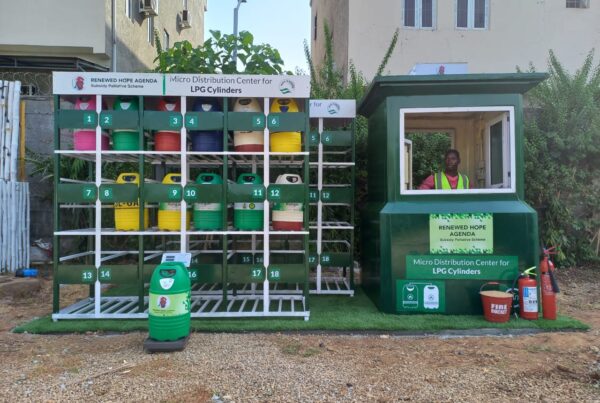Nigeria’s gas sector is undergoing a significant transformation, driven by robust government initiatives and regulatory reforms that are providing a more conducive environment for natural gas penetration. As the country positions itself for a more resilient energy future, businesses have an unprecedented opportunity to capitalize on evolving market dynamics, particularly with liquefied petroleum gas (LPG) and compressed natural gas (CNG). In this new conendrum, the private sector must play a pivotal role in supporting the nation’s economic growth and recovery.
The Presidential CNG Initiative (Pi-CNG): A Game Changer for Nigeria’s Gas Market
The Presidential CNG Initiative (Pi-CNG) represents a landmark effort by the Nigerian government to transition from gasoline to cleaner and more cost-effective energy sources. Launched with the goal of reducing the country’s reliance on imported fuels and minimizing environmental impact, Pi-CNG aims to promote the widespread adoption of CNG across various sectors, including transportation and industry.
Under Pi-CNG, there has been a substantial push to enhance the infrastructure needed for CNG distribution and utilization. This includes the construction of new refueling stations, upgrading existing facilities, and incentivizing businesses to invest in CNG-powered vehicles and equipment. By making CNG more accessible and affordable, the initiative seeks to drive down transportation costs, reduce air pollution, and foster greater energy independence.
To be even more inclusive and sustainable, the private sector must follow suit and support the expansion of a domestic supply-chain for CNG. This is particularly needed for the assembly and manufacturing of conversion kits and cylinders, which are currently imported but could be manufactured locally.
Regulatory Reforms and New Funding Avenues
Complementing the Pi-CNG initiative are recent regulatory reforms, notably the adoption of the Petroleum Industry Act (PIA) and release of executive orders that incentivise investments in gas supply.
Out of recent market developments, the launch of the Midstream and Downstream Gas Infrastructure Fund (MDGIF) is a key milestone that helps addressing the infrastructure gaps in Nigeria’s gas sector, specifically in the midstream and downstream segments. Its operationalisation is most welcome as the Central Bank of Nigeria (CBN) has decided to stop all its development financing to focus on its core monetary policy mandates.
The MDGIF is designed to stimulate private sector investment by providing financial support for critical infrastructure projects, such as gas pipelines, storage facilities, and processing plants. By improving the efficiency and reliability of gas infrastructure, the fund will facilitate a more robust supply chain, reduce costs, and enhance the overall attractiveness of the Nigerian gas market to investors.
Market Momentum and Investment Opportunities
The combination of government initiatives and regulatory reforms is creating a favorable environment for the growth of Nigeria’s CNG and LPG markets. Key factors driving this momentum include:
- Enhanced Infrastructure: With significant investments in infrastructure, there is increased capacity for gas production, storage, and distribution. This creates a more stable supply chain and reduces operational risks for businesses.
- Government Support: The government’s proactive stance on promoting CNG and LPG adoption reflects a commitment to energy diversification and economic stability. This support translates into various incentives and subsidies that lower the entry barriers for new investments.
- Economic and Environmental Benefits: The shift to CNG and LPG not only promises lower fuel costs but also aligns with Nigeria’s environmental goals. Cleaner energy sources contribute to reduced greenhouse gas emissions and improved air quality, which are critical for sustainable development.
- Growing Demand: As more industries and consumers recognize the advantages of CNG and LPG, demand for these energy sources is expected to rise. This creates ample opportunities for companies to expand their operations and capture a larger market share.
Rungas Group: Leading the Charge in Nigeria’s Gas Revolution
Nigeria’s gas sector is on the brink of a transformative shift, fueled by government initiatives and regulatory reforms aimed at promoting CNG and LPG. The momentum generated by these efforts creates a fertile ground for investment and growth, offering significant opportunities for companies to contribute to the country’s economic prosperity.
As the gas sector evolves, businesses like Rungas Group have the chance to lead by example, harnessing the potential of these developments to drive innovation and support Nigeria’s energy future. By seizing this moment, Rungas Group can not only enhance its market position but also play a pivotal role in shaping Nigeria’s sustainable and prosperous energy landscape.
We are uniquely positioned to capitalize on these trends due to our extensive experience and expertise in the gas sector. By investing in CNG and LPG infrastructure, expanding distribution networks, and adopting advanced technologies, Rungas Group can drive growth and deliver value to stakeholders.






